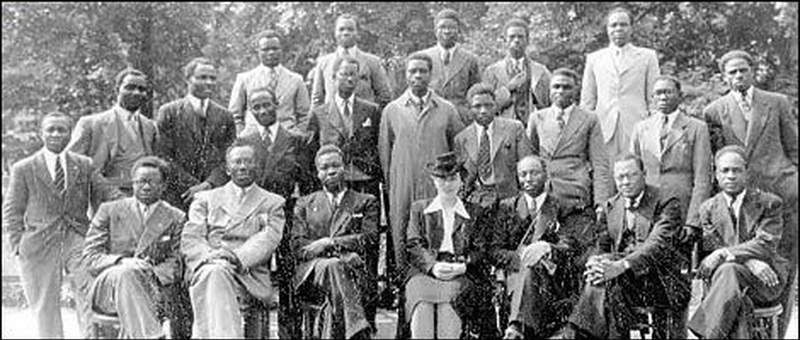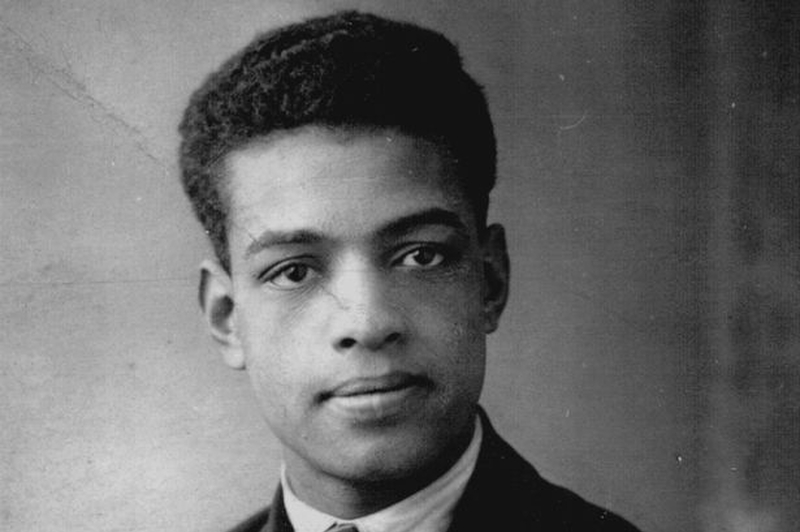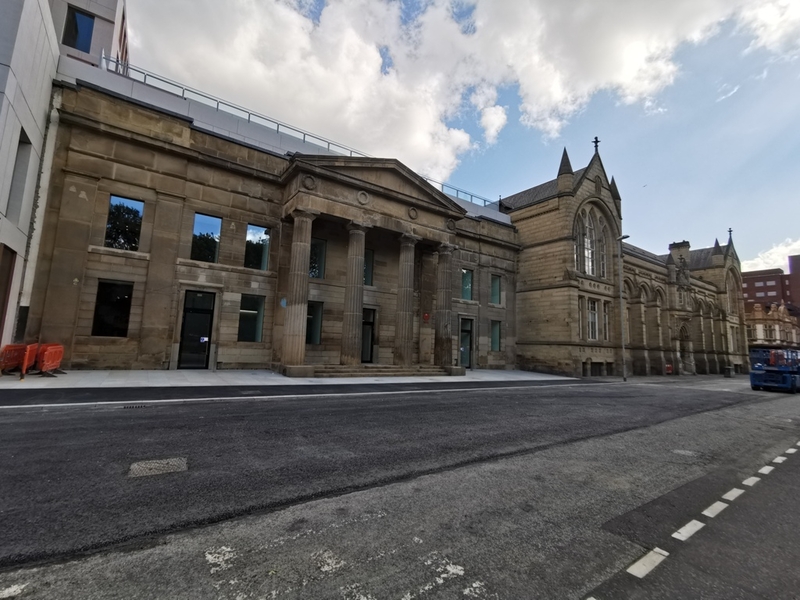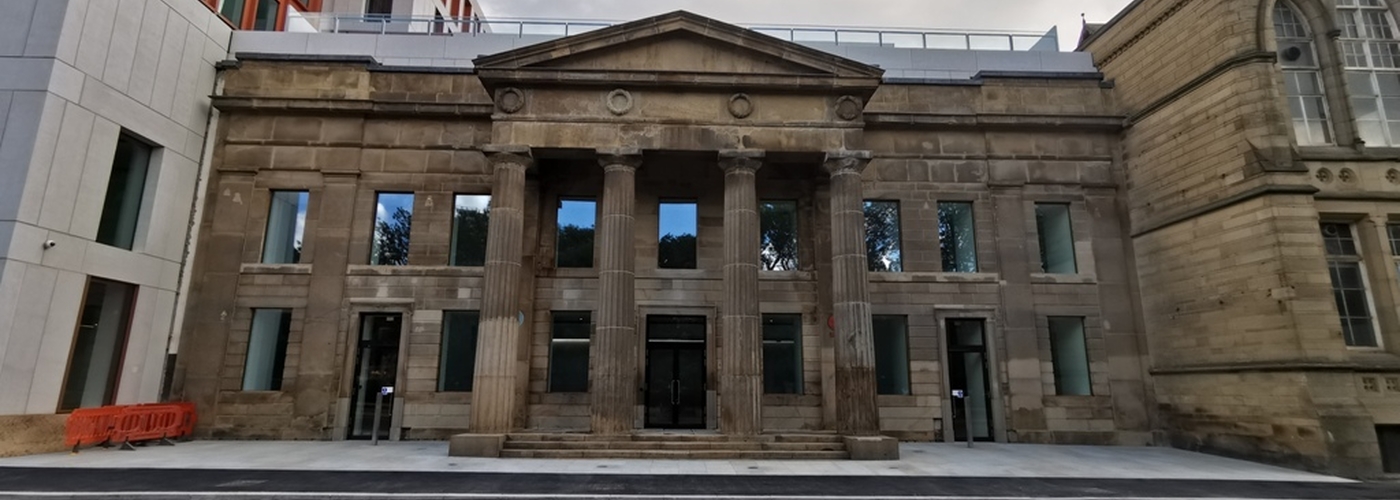Jonathan Schofield on a lovely building unveiled with a hugely relevant history
A splendid facade has been revealed in all its cleaned up glory.
At All Saints, among the Manchester Metropolitan University buildings, is the handsome, if severe, former Chorlton-on-Medlock Town Hall.
The building was designed by Richard Lane and was completed in 1831. It has a muscular portico sporting columns with Doric capitals and looks the very measure of a sober civic building.
Is there time to mark the 75th anniversary this year? A parade perhaps? Of course there is
There are two plaques on the building. One is very standard, giving the name, date and original function; the other marks one of those significant moments in history of which Manchester has so many. The latter is extremely pertinent to events unfolding right now.
It could be argued that Manchester doesn’t commemorate its significant history enough, and the fifth Pan-African National Congress held in the city in 1945 is a case in point. In October of that year the Congress met in Chorlton-on-Medlock Town Hall. Sadly the plaque gets the name wrong and calls it the Pan-African Conference...it needs correcting.

The previous Congress meetings, beginning in 1900, had been dominated by mostly black American intellectual activists but in Manchester the African and West Indian delegates would set the agenda. Many famous names such as Jomo Kenyatta and Kwame Nkrumah attended and the event was chaired by veteran West Indian journalist and campaigner George Padmore. The major American presence was provided by the veteran campaigner W.E.B Du Bois, who has been called the ‘Father of Pan-Africanism.’ One of the resolutions at the meeting affirmed ‘the right of all colonial peoples to control their own destiny.’
In total there were 200 people in attendance, with 87 delegates representing some 50 organisations. But why was the Congress held in Manchester – rather than, say, London? Well, in this city there were determined and organised individuals within the black community such as Ras Makonnen and Dr Peter Milliard. The latter had founded the Negro Association in Manchester in 1943.
Other prominent figures included Len Johnson, a radical black campaigner from Clayton, who also happened to be a champion boxer and a communist. He was a remarkable man and co-founder of the New International Society, which provided a home to black political thinking in the city. Johnson had been the victim of racism, not least in having to give up boxing due to a colour bar.

Ras Makonnen, who had made money from, among other things, a successful restaurant, recalled: ‘Manchester had become a point of contact with the coloured proletariat in Britain and we had made a name for ourselves in fighting various areas of discrimination in Britain … You could say that we coloured people had a right there because of the age-old connections between cotton, slavery and the building up of cities in England … Manchester gave us an important opportunity to express and expose the contradictions, the fallacies and the pretensions that were at the very centre of the empire.’
Marika Sherwood in a study of the Congress has written: ‘Manchester was the home of various activists who had good links with the wider community. Lodgings and catering for the delegates were therefore not a problem – a major factor at the time when hotels would not accommodate black people.
‘Chorlton on Medlock Town Hall was decorated with the flags of the Republics of Haiti, Ethiopia and Liberia, the only three nominally independent black countries in 1945. It’s hard to imagine how extraordinary it must have been for the delegates to hear and share stories of the struggle going on in their different countries.’

Among the resolutions passed was one promoting the criminalisation of racial discrimination.
The Congress also issued a challenge: ‘We are determined to be free. We want education. We want the right to earn a decent living; the right to express our thoughts and emotions, to adopt and create our own forms of beauty.’
Think about those three sentences.
They can make the hardest heart ache. Especially that long last sentence, for that is what democracies should, nay must, deliver: plurality and fairness whatever one's creed or colour. For all.
The Manchester Congress was a huge step towards independence in Africa and the West Indies. As Kenyatta would later say, this was ‘a landmark in the…struggle for unity and freedom.’ The Congress took place from 14th - 22nd October 1945.
Is there time to mark the 75th anniversary this year? A parade perhaps? An exhibition?
Of course there is.
It should be done.
Jonathan Schofield is a the editor-at-large of Manchester Confidential and also a guide and writer. He is currently conducting a series of Zoom presentations on aspects of city life. In July, one of these will be called The Pan-African National Congress, Slavery and Manchester. Click on the link to find out more and book a place.















